Every year in the U.S., more than 93,000 women learn they have a gynecologic cancer.
Gynecologic cancer is any cancer that starts in a woman’s reproductive organs. The five main types are cervical, ovarian, uterine, vaginal, and vulvar. While all women are at risk, and risk generally increases with age, few women will ever develop a gynecologic cancer.
Because there is no simple and reliable way to screen for gynecologic cancers (except for cervical cancer, which can be found with a Pap test), early detection often depends on women knowing their bodies and what is normal for them, recognizing changes or unusual symptoms, and seeing a doctor to find out what’s causing these symptoms.
Many symptoms are easy to overlook if you don’t know what to look for. That’s why it’s important to know the warning signs of gynecologic cancers. Abnormal bleeding is one such symptom – if you have bleeding after you have already gone through menopause, or if you notice your periods are heavier and last longer than usual, or you’re bleeding between periods, see a doctor right away. Also see a doctor if you have any of the following symptoms for two weeks or longer. And remember, most often they don’t mean you have cancer, but find out for sure!
Read on to learn the eight gynecologic cancer warning signs women should never ignore.
1. Pelvic Pain Or Pressure
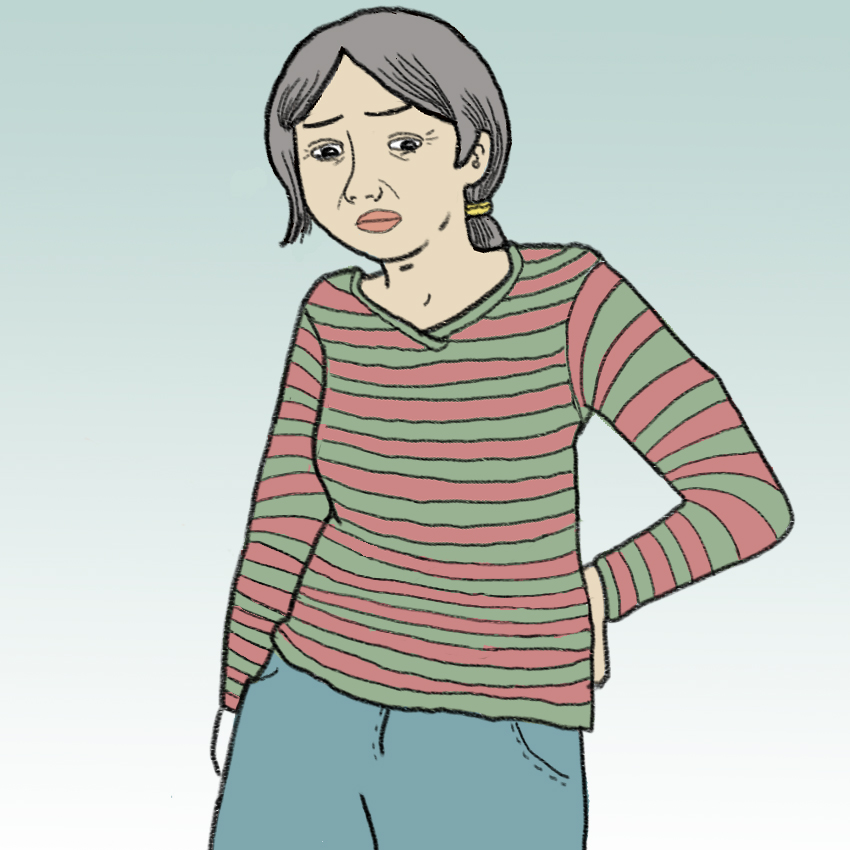
Pain or pressure in the pelvic area could be a sign of ovarian or uterine cancer.
Having pelvic pressure every now and then may be normal and nothing to worry about, especially around the time you’re getting or you have your period.
If you feel persistent or worsening pain or pressure in the pelvic area (lower part of the tummy or abdomen), and if it lasts for two weeks or longer, make an appointment with your doctor.
2. Feeling Full Too Quickly Or Having Difficulty Eating
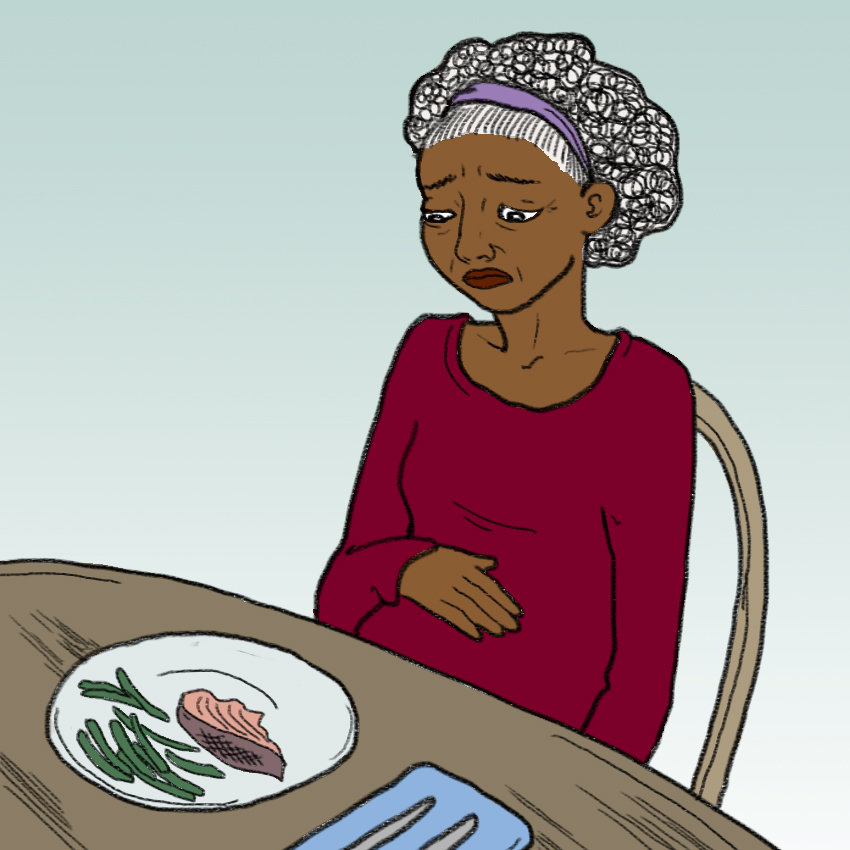
If you notice you are having trouble eating or feeling too full too fast, and it goes on for two weeks or longer, see a doctor. Although it is normal to feel full every once in a while, when it persists for no reason you know of and it’s difficult to eat, it’s important to find out why.
3. Abnormal Bleeding Or Discharge
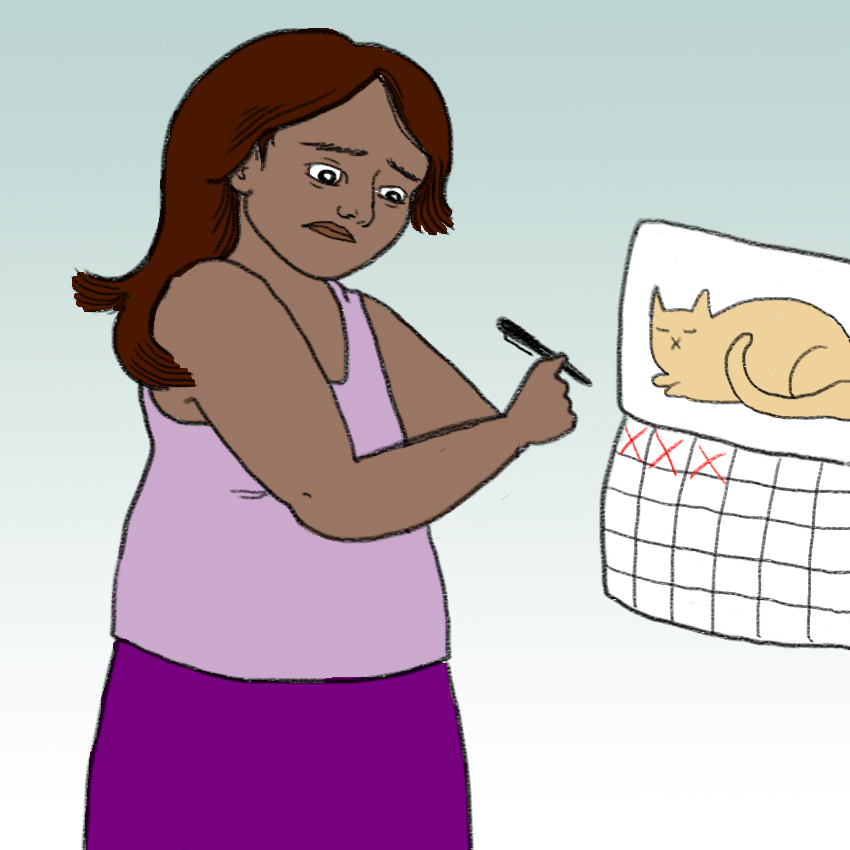
Bleeding between periods, after sex, or after menopause could be a sign of cervical, ovarian, uterine, or vaginal cancer, according to the Centers for Disease Control and Prevention (CDC).
Any woman who has unusual bleeding or discharge, or who notices periods that are longer and heavier than normal, should see a doctor to find out why.
4. Bloating
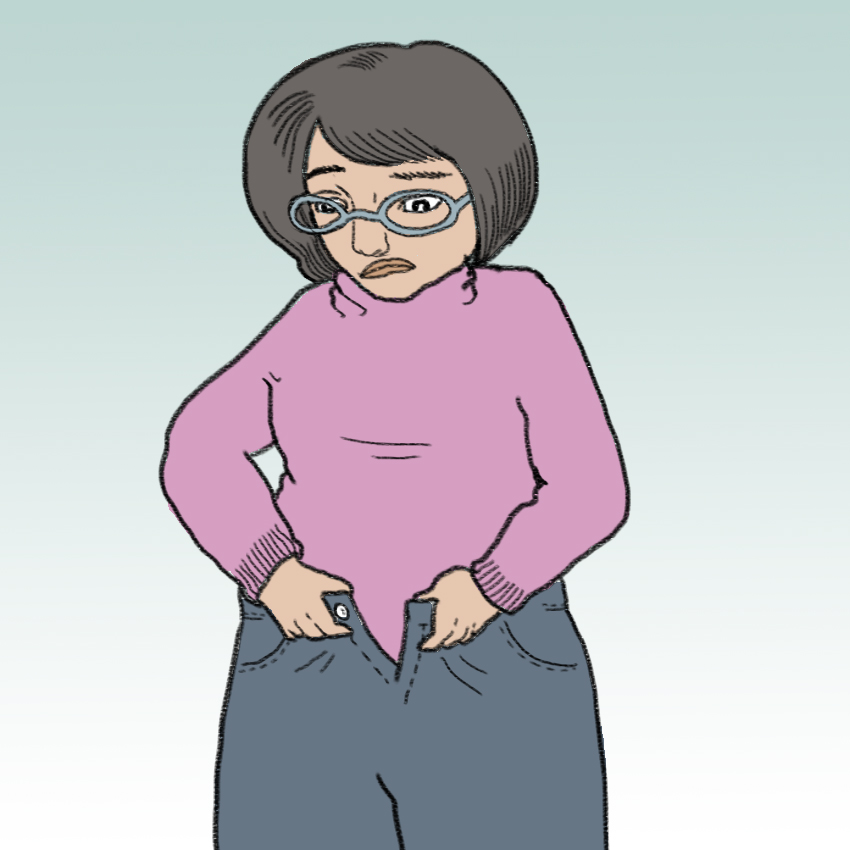
No woman likes it when belly bloat keeps her pants from buttoning, but that bulge might be telling you something – especially if it persists and worsens over time.
Bloating that does not go away may be a sign of ovarian cancer, according to the CDC. It should not be ignored, especially when it’s unexplained and goes on for two weeks or longer. See a doctor to find out what’s causing it.
5. More Frequent Or Urgent Need To Urinate
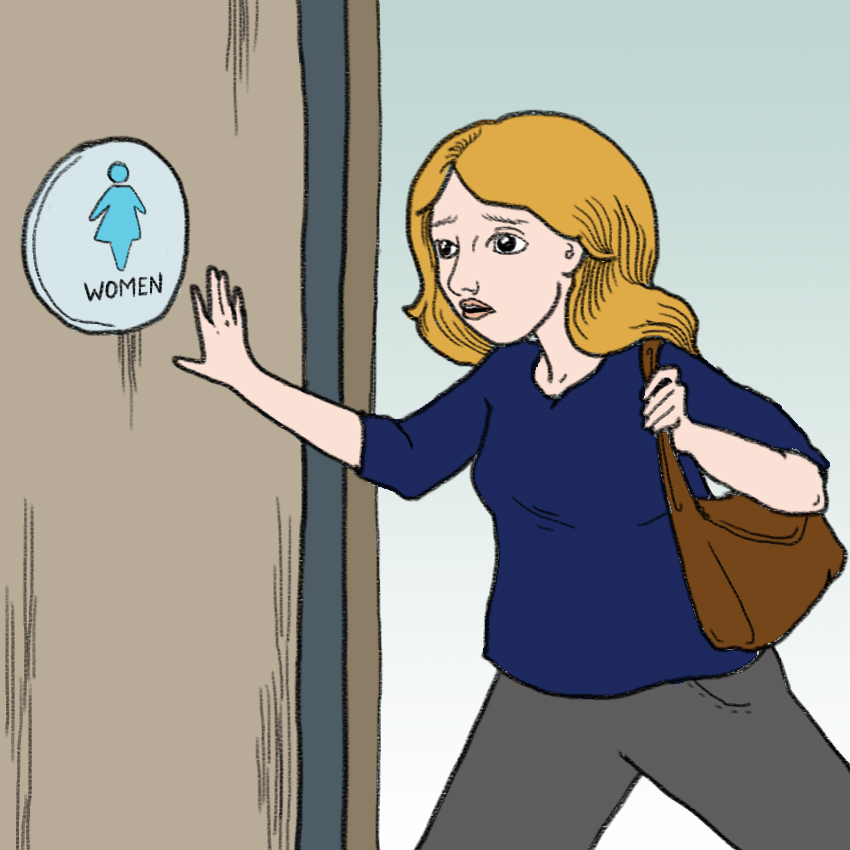
Drinking a lot of water and having to urinate frequently is one thing. It’s easily explained. But if you find yourself having to go to the bathroom more often and more urgently than is normal for you, talk to your doctor. A change in bathroom habits can be a less obvious symptom of ovarian or vaginal cancer.
Of course, frequent urination could be a symptom of other things—like a urinary tract infection. In any case, it’s something to mention to your doctor.
6. Changes In Vulva Color Or Signs Of Rashes And Sores
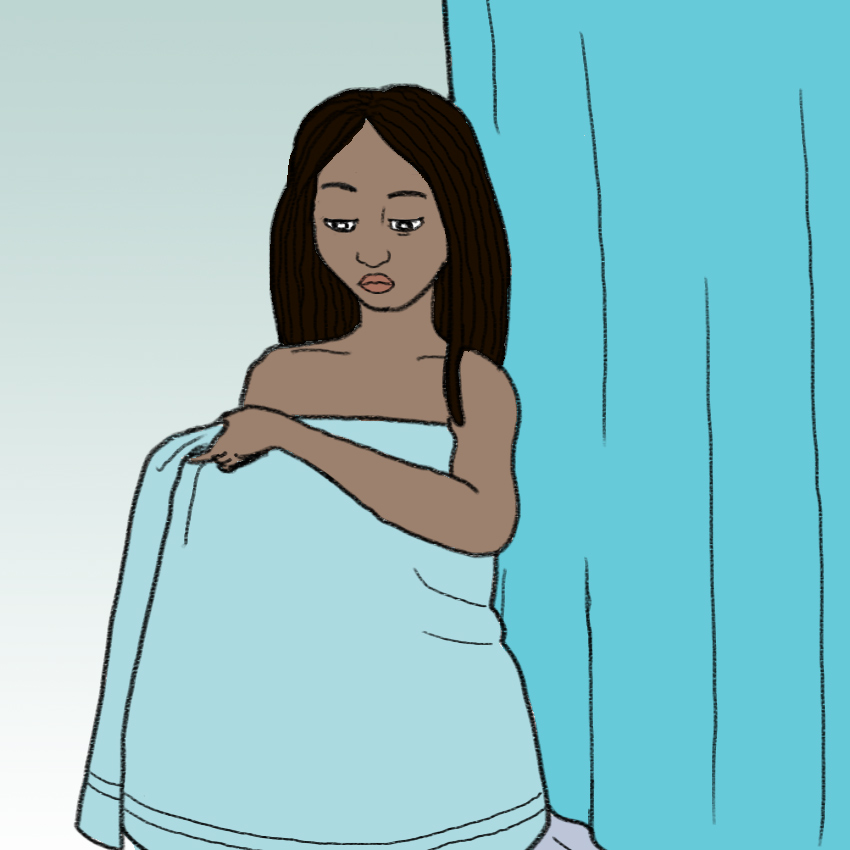
Changes in the skin on your vulva may signal something is wrong. Such changes can include the color (redder or whiter than usual), as well as a rash or sore that doesn’t go away after 2 weeks. See a doctor if you notice changes like this.
7. Abnormal Itching

Vaginal itching or burning is probably nothing, but it can be a symptom of vulva cancer. Even though itching or burning is usually easily treated, you should speak with your doctor to find out the cause and what to do about it.
8. Unexplained Back Pain
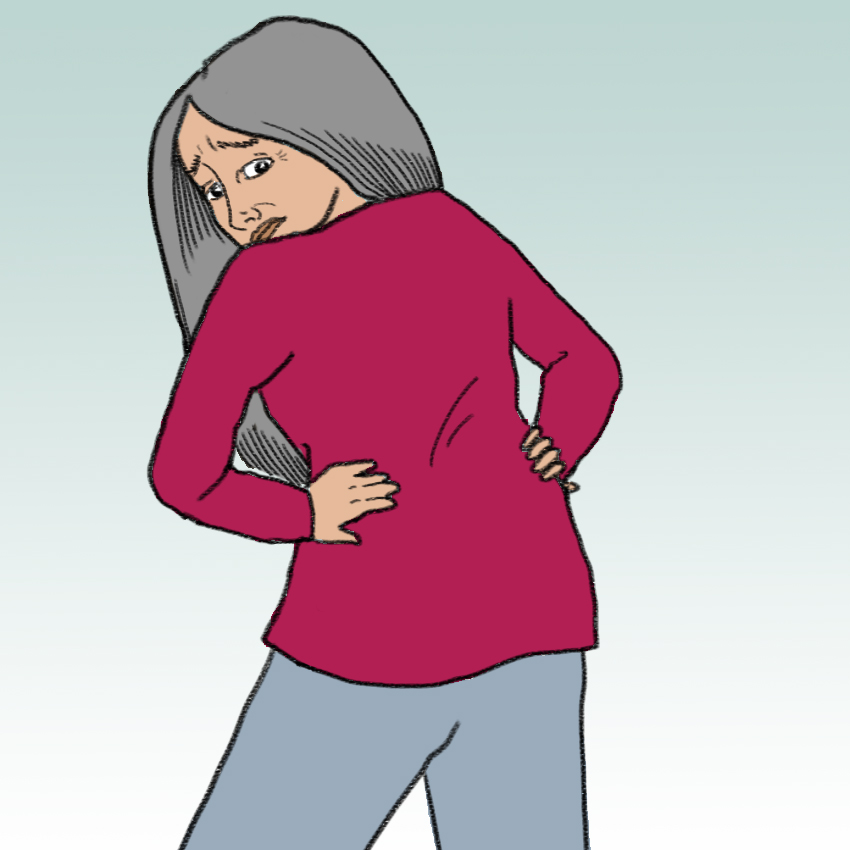
Generally, if ovarian cancer does cause pain, it may be subtle, especially at first. That’s why it’s important to know your body and what’s normal for you.
If you feel persistent or worsening back pain in your lower back – and it’s unusual for you – it could be a sign that something is wrong, especially if it goes on for two weeks or longer. It may be nothing, but find out!
To catch gynecologic cancers early, women need to know their own bodies and what’s normal for them, and see a doctor if they notice unusual symptoms that don’t go away.
Remember, Pap tests screen for cervical cancer, so get a Pap test regularly. But the Pap does not screen for any cancer other than cervical. There is no reliable routine screening test for other gynecologic cancers, so it’s important to pay attention to your body and know the warning signs.
In addition, women with a family history of ovarian cancer should talk to their doctors about whether and how often they should be checked. When gynecologic cancers are found early, treatment can be most effective.
Please SHARE this vital health information so that others can look out for these symptoms, too.




